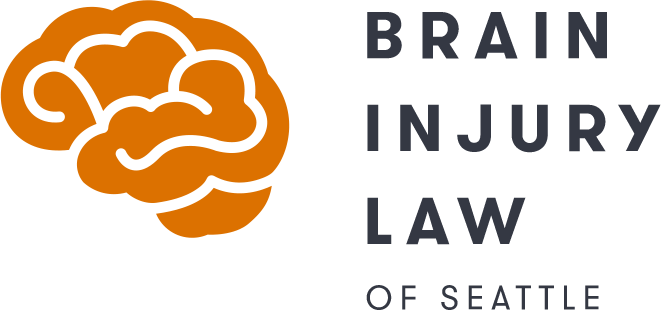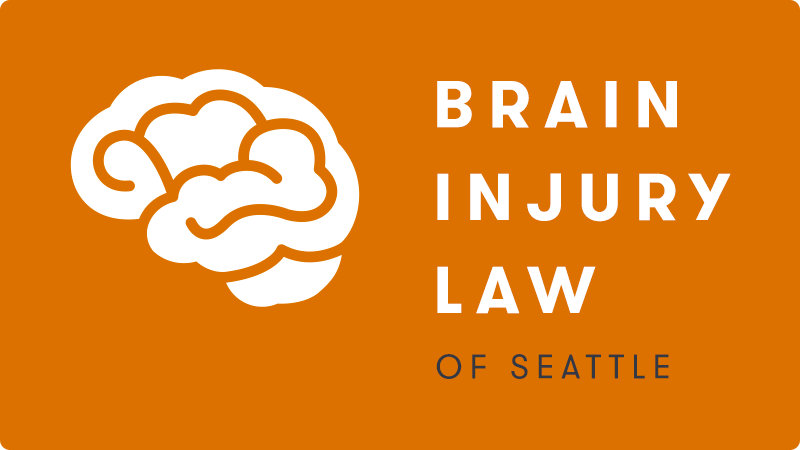How Brain Injuries Can Affect Victim’s Lives
A brain injury can temporarily or permanently affect a victim’s life. Hobbies, careers, daily tasks, future plans, and more all take a backseat when a traumatic brain injury TBI is sustained.
Victims of traumatic brain injuries or head injuries may face issues such as paralysis, unemployment, depression, financial stress, PTSD, chronic pain, and a loss of life enjoyment.
Due to the dire effects of suffering a TBI, it’s paramount that victims have a support network by their side throughout recovery and a strong legal team to partner with.
A traumatic brain injury lawyer is educated in the law regarding TBIs and understands how to work with those who’ve become victims of head injuries.
Brain Injury Statistics
According to the CDC, in 2019, there were 61,000 deaths linked to traumatic brain injuries in the United States alone.
Anyone may suffer accidents that result in brain injuries from any age group or background. They are unfortunately quite common injuries and may be sustained in a vast number of ways.
Read on to learn about some of the most common types of brain injuries and their symptoms.
Common Types of Brain Injuries
Traumatic brain injury TBI is a vast category that includes a wide range of different types of brain injuries. Some of these include:
- Cerebral contusion (hematoma). This type of brain injury occurs in severe TBI cases and is when the brain receives a bruise. This can cause bleeding and swelling in the brain, and injuries of this nature should always have immediate medical attention.
- Concussion (mild TBI). This is by far the most common type of TBI and can be sustained in many ways. Concussion symptoms generally only last several days, but victims should still seek out medical care to be safe.
- Anoxic brain injury. This type of TBI is sustained due to a lack of oxygen to the brain — resulting in brain cell death. These TBIs are generally linked to strokes, drowning, or carbon monoxide poisoning.
- Hemorrhage. When an individual suffers a stroke, arteries in the brain can burst and cause localized bleeding, resulting in surrounding brain cell death.
- Cerebral edema. A very dangerous condition, this type of TBI can occur due to infections, strokes, brain tumors, or physical trauma to the head.
- Skull fracture. When trauma is dealt to the head, the skull may fracture, resulting in brain damage and a number of other life-threatening complications.
- Diffuse axonal injury. This type of injury occurs when brain axons are torn due to the brain shifting inside the skull. Diffuse axonal injuries are severe and can result in coma and lasting injury.
- Severe TBI. While a concussion is generally considered a mild TBI, severe TBIs can cause a series of alarming symptoms such as seizures, vomiting, loss of consciousness, and more.
Symptoms of Traumatic Brain Injuries
Depending on the type of TBI suffered, symptoms range significantly in terms of type and severity. It’s important for suspected victims of traumatic brain injuries that they seek out medical attention (even if their symptoms do not appear to be severe).
Due to the lasting impact of TBIs on a person’s physical and cognitive capabilities, it’s paramount to work with medical professionals following an accident where a TBI was sustained.
Some symptoms of brain injuries include:
- Nausea
- Vomiting
- Confusion, brain fog, disorientation, etc.
- Headache or migraine
- Blurred vision
- Dizziness, loss of coordination, issues with balancing
- Difficulty remembering new information
- Ringing in the ears
- Speech difficulty
- Altered sleeping pattern
- Emotional or behavioral changes
- Loss of consciousness for several seconds or even minutes
- Sensitivity to light or sound
- Lethargy
- Paranoia, anxiety, mood swings, irritability, unusual displays of anger
- Trouble thinking coherently
Brain Injury Lawyers in Seattle, WA
If you’ve suffered a brain injury, it’s important to protect your health, your future, and your finances by working with qualified traumatic brain injury lawyer during this time.
Suppose your injury was caused by the negligent or willful misconduct of another party. In that case, a brain injury law firm can help you pursue just compensation for your physical, financial, and emotional damages.
If you are ready to get the legal care that you deserve, Brain Injury Law of Seattle’s team of TBI lawyers is ready to assist you with your legal journey.
Common Causes of Traumatic Brain Injury
TBIs can be caused in a wide number of ways, both accidental and intentional. Some of the many incidents that may result in traumatic brain injury cases are detailed in the following sections.
Vehicle Collision Resulting in a TBI
Car, truck, and motorcycle collisions are some of the most common culprits of TBIs. Whiplash as well as striking the head against the dashboard or window during a collision, often result in a traumatic brain injury.
Traumatic Brain Injuries Caused by Medical Negligence or Oxygen Deprivation
Medical malpractice is, unfortunately, a common cause of TBIs. If medical negligence caused a brain injury, it’s important to work with a TBI attorney to pursue compensation for your injury.
Traumatic Brain Injury Involving Sports Injuries
Many people participate recreationally in sports, which, while fun, can pose a serious risk to health if you are involved in a sport where a collision with another player may occur.
Slip & Fall Accidents Resulting in TBIs
One of the most common causes of TBIs, slip and fall accidents, may occur due to slippery surfaces, liquid spillage, insufficient signage, non-functional stairways, and more.
Construction Site or Workplace-Caused Traumatic Brain Injuries
High-risk environments that are common locations for TBI accidents include construction and workplace sites.
The combination of large equipment or machinery operation in addition to any lack of proper training or safety wear can yield disastrous results.
Traumatic Brain Injury Caused by Physical Violence
Physical trauma to the head, such as assault or physical violence, is often responsible for mild or severe TBIs.
Victims of a physical assault should always seek out legal action against the party responsible for injuring them.
What to Do if You Have Suffered a TBI
If a traumatic brain injury has recently victimized you, it’s important to take certain steps to ensure that you take care of your physical and financial wellbeing.
Four steps to follow if you have suffered a TBI include:
- Seek out medical help immediately. Nothing is more important than your physical health and safety, so you should always visit your doctor immediately following an injury to the head.
- Get legal help. The sooner you start working with a Seattle brain injury lawyer, the better your chances are of getting a satisfactory settlement sooner.
- Try to reduce stress as much as possible. An essential part of recovery is reducing as much stress and anxiety as possible. While this is quite difficult, try doing self-care things for yourself every day to diminish stress.
- Avoid giving any statement about your injury. Refrain from giving statements or posting on social media platforms about your traumatic brain injury, as these things could potentially harm your settlement number.
How Are Brain Injuries Diagnosed?
Diagnosis type is dependant on the kind of brain injury sustained, but some common methods for diagnosing a TBI include:
- CT scans
- MRI scans
- Cognition tests
- Neuropsychological assessment tests
Problems Caused by Brain Injuries
TBIs can be responsible for causing extensive short or long-term health issues.
Some of the ramifications of traumatic brain injuries include:
- Permanent physical or cognitive impairment (paralysis, personality changes, inability to live without in-home care).
- Inability to return to the workplace (temporarily or permanently).
- Loss of future career opportunities.
- Loss of present and future earnings.
- Inability to participate in hobbies, activities, or daily tasks.
- Inability to contribute to household and child rearing tasks.
- Emotional distress (anxiety, PTSD, depression, etc.).
- Temporary or permanent memory loss.
How Can a Brain Injury Attorney Help?
A brain injury law firm can assist victims of TBIs in acquiring just compensation for their injuries.
One of the reasons specialized brain injury law firm are so essential is that they understand all of the factors that play into a satisfactory settlement.
Brain injury lawyer know all of the different things that should influence the settlement number. Expenses like current and future medical costs, lost wages, as well as emotional pain and suffering are all legitimate damages that victims deserve compensation for.
Brain Injury Law of Seattle - Representing the Injured in Seattle Area
Brain Injury Law of Seattle has been working with victims and their families towards recovery following a catastrophic accident that resulted in a TBI.
Our law firm understands the serious impact of brain injuries on a person’s life and livelihood. We’ve worked with countless TBI victims over the past 25 years, and during that time, we’ve witnessed first-hand how a traumatic brain injury can derail and destroy a person’s life plans and goals.
Brain Injury Law of Seattle is here to help you recover and flourish following an accident. Get in touch with our firm to schedule a consultation with our seasoned Seattle brain injury attorney, Scott Blair.
Frequently Asked Questions About Brain Injuries
The following sections contain answers to some of the most common questions that victims of TBIs have following a catastrophic accident.
If you have additional questions that you would like answers to, get in touch with Brain Injury Law of Seattle to schedule a consultation with seasoned Seattle brain injury lawyers.
Who Is Held Responsible in Brain Injury Cases?
This is a tricky question to answer and must be asked to your lawyer after they understand the facts of your case. Establishing who is at fault for causing the TBI can only be done with a seasoned traumatic brain injury attorney.
Common examples of defendants in TBI cases might be establishment owners, drivers, co-workers, or bosses.
Do I Need a Brain Injury Lawyer to File a Claim for TBI?
While it is possible to file a TBI claim without a lawyer, it is never advisable. Insurers or the at-fault party’s lawyer may take advantage of the fact that you do not have a seasoned attorney on your side to make settlement offers that, while sounding impressive, are not sufficient.
It takes a skilled traumatic brain injury attorney to ensure that all of your damages are accounted for in the settlement number. This can be nearly impossible to calculate on your own, but a brain injury lawyer can collaborate with the right people to make sure that your injuries will be covered.
Seasoned TBI lawyers work with medical professionals, social workers, and others to ensure that every angle of your case is accounted for in the final settlement number.
How Long Do I Have to File a Brain Injury Claim After a Brain Injury?
The statute of limitations in Washington State for most brain injury-related cases is three years from the date of the accident.
Victims who begin filing their claim after three years have passed may not get financial compensation for their damages.
How Much Compensation Should I Expect After a Traumatic Brain Injury?
The settlement number is determined by the extent of physical, emotional, and cognitive damages the victim suffered and what ramifications the injury will have in their occupational and daily lives.
How Long Does it Take to Get Compensation for a Traumatic Brain Injury?
The length of time that it may take a victim to get compensation for their TBI varies dramatically. The complexity of their brain injury case, the parties involved, as well as the level of experience of the attorney all play a part in determining the length of the case.
Get in Touch With a Brain Injury Attorney Today
Our leading attorney, Scott Blair, at Brain Injury Law of Seattle, has been working in the TBI law space for over two decades. Our firm is passionate about protecting victims and their families from a TBI's repercussions on their lives, financially, cognitively, and physically.
If you are ready to get the legal protection and care you deserve, schedule a consultation at Brain Injury Law of Seattle today.
Services We Offer

















